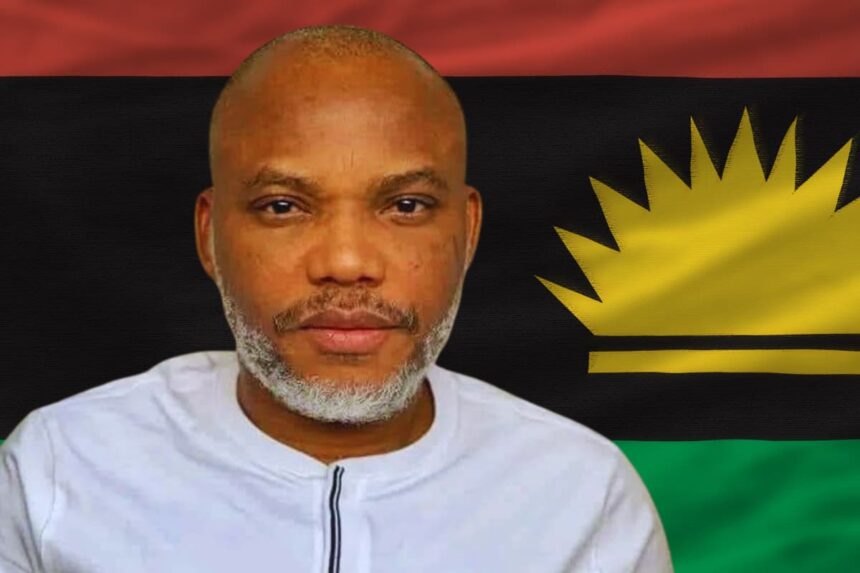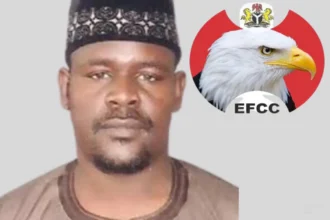ABUJA – In response to recent speculations, the National Judicial Council (NJC) has firmly denied reports suggesting that the Chief Justice of Nigeria (CJN), Justice Kudirat Kekere-Ekun, played any role in ordering the release and repatriation of Nnamdi Kanu, the leader of the Indigenous People of Biafra (IPOB). The NJC, in a statement issued on Thursday, described such claims as unfounded and lacking any basis in legal proceedings or official documentation.
“The Council categorically states that the media report in circulation is false and a mere fabrication. There are no records of any court ruling or pronouncement by the Honorable CJN regarding Nnamdi Kanu’s case,” the statement asserted.
Furthermore, the NJC emphasized that Justice Kekere-Ekun had not presided over any legal proceedings related to Kanu at the Supreme Court, nor had she made any statements concerning jurisdictional matters.
“His Lordship, the Honorable CJN, neither issued any formal letter to the Kenyan government nor extended any apology regarding Kanu’s arrest and prosecution,” the statement, signed by Kemi Ogedengbe, Deputy Director of Information at the NJC, reaffirmed.
Meanwhile, Kanu is set to appear before the Federal High Court in Abuja on Friday, where he will enter a fresh plea before Justice James Omotosho. The case was reassigned following Justice Binta Nyako’s decision to recuse herself after allegations of bias from Kanu’s legal team. Counsel for Kanu, Alloy Ejimakor, has commended the CJN for facilitating the case reassignment after initial resistance from the Chief Judge of the High Court, Justice John Tsoho.
Kanu has remained in the custody of the Department of State Services (DSS) since June 29, 2021. His trial court previously struck out eight of the original 15 charges leveled against him by the Federal Government, ruling them unsubstantial. On October 13, 2022, the Court of Appeal in Abuja also ordered his immediate release, dismissing the charges against him. However, the Federal Government challenged this decision at the Supreme Court, securing a stay of execution while its appeal was considered.
On December 15, 2023, the Supreme Court overturned the Court of Appeal’s ruling, allowing the Federal Government to proceed with the remaining seven-count charge against Kanu.
The controversy surrounding Nnamdi Kanu’s return from Kenya to Nigeria has sparked intense debate among legal experts and human rights advocates. Many argue that the nature of his transfer falls under extraordinary rendition, a practice that is widely regarded as illegal under both domestic and international legal frameworks.
Extraordinary rendition occurs when an individual is forcibly moved across borders without undergoing proper legal extradition processes. This contravenes key legal provisions, including:
- The African Charter on Human and Peoples’ Rights, to which Nigeria is a signatory, prohibits arbitrary arrests and unlawful extraditions.
- The United Nations Convention Against Torture, which forbids the transfer of individuals to jurisdictions where they could face mistreatment or torture.
- Nigeria’s Extradition Act, which mandates that all extraditions follow due judicial process, including formal hearings and legal justifications.
As a nation bound by multiple human rights treaties, Nigeria is obligated to uphold legal standards when handling cross-border legal matters. The manner in which Kanu was brought back raises serious concerns about whether these obligations were adhered to, especially concerning due process and fair trial rights.
Beyond the issue of rendition, Kanu’s case has also drawn attention to the perceived interference in judicial proceedings. Notably, after the Court of Appeal ruled in his favor in 2022, several judges involved in the decision were reassigned to other courts. While judicial transfers are common, the timing of these movements has led to suspicions that external influences may be affecting the judiciary’s independence.
A legal system that operates without political influence is crucial for maintaining public trust. Any indication of undue pressure on the judiciary weakens confidence in the courts and threatens the principles of fairness and justice. Ensuring transparency in judicial processes remains a fundamental requirement for upholding the rule of law.
The unfolding events in Nnamdi Kanu’s legal battle serve as a crucial test of Nigeria’s commitment to justice, due process, and human rights. Allegations of extraordinary rendition and judicial manipulation have placed the nation’s legal system under intense scrutiny. As the case progresses, the spotlight will remain on whether the judiciary can operate independently and uphold the principles of fairness in accordance with constitutional and international legal standards.


















